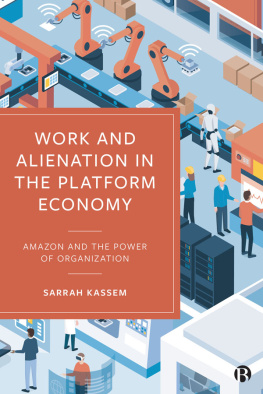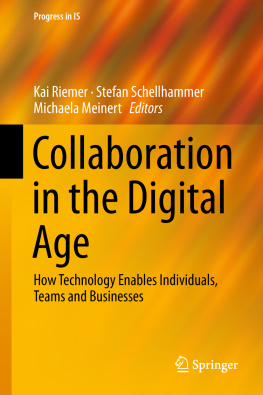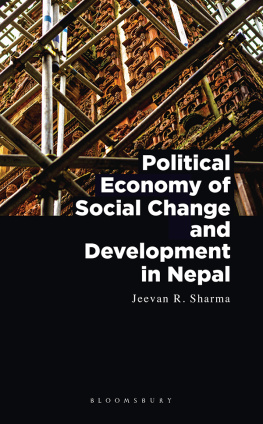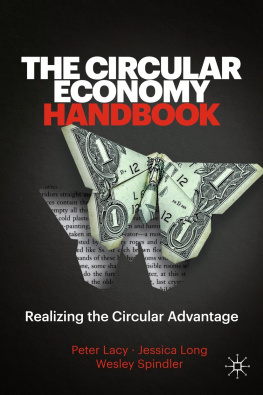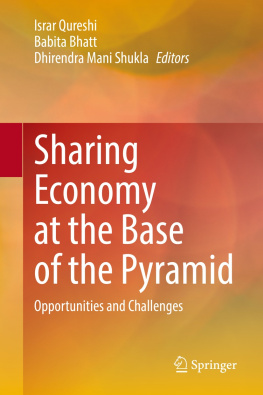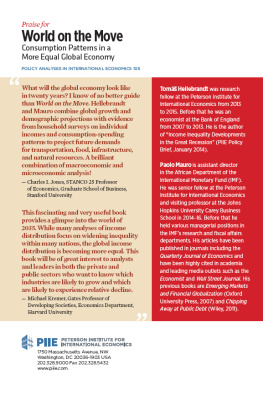The Economy of Collaboration
Over the past few decades, the world economy has undergone radical transformations, in part connected to the expansion of the digital economy, in part to the growing interconnection via the internet of the world of objects and physical processes. This great transformation poses the dilemma on the capitalisms ability to reconcile economic and social value, keeping together economic well-being, social cohesion and political freedom.
The Economy of Collaboration can offer a contribution in this direction but requires courageous policies to mediate the various interests at stake, as well as to rethink and make more sustainable its development, by increasing the benefits not only for businesses but also for workers and consumers. In short, to create shared value.
This book refers to a mode of organizing the production, distribution and consumption of goods and services based on cooperative relations. The main reference is to activities linked to the digital economy, since they are the emerging forms of a definitely older phenomenon, but which is expanding on an ever-wider scale thanks to new technologies. These collaborative activities can be regulated differently, along a continuum that ranges from the pole of market exchanges to that of generalized reciprocity, with various intermediate mixed forms.
Francesco Ramella is a Professor of Economic Sociology at the University of Torino, Italy, where he is Co-Director of the Luigi Bobbio Center. He co-founded and was the first president of the Italian Society of Economic Sociology. In 2016, he published the Sociology of Economic Innovation.
Cecilia Manzo is an Assistant Professor of Economic Sociology at the Universit Cattolica del Sacro Cuore, Italy.
Routledge Advances in Sociology
293 Mobilising Place Management
Claus Lassen and Lea Holst Laursen
294 International Labour Migration to Europes Rural Regions
Edited by Johan Fredrik Rye and Karen OReilly
295 The Subjectivities and Politics of Occupational Risk
Mines, Farms and Auto Factories
Alan Hall
296 Civil Society
Between Concepts and Empirical Grounds
Edited by Liv Egholm and Lars Bo Kaspersen
297 The Economy of Collaboration
The New Digital Platforms of Production and Consumption
Francesco Ramella and Cecilia Manzo
298 Rural Youth at the Crossroads
Transitional Societies in Central Europe and Beyond
Edited by Kai A. Schafft, Sanja Stanis, Renata Horvatek and Annie Maselli
299 Indigenous Invisibility in the City
Successful Resurgence and Community Development Hidden in Plain Sight
Deirdre Howard-Wagner
For more information about this series, please visit: https://www.routledge.com/Routledge-Advances-in-Sociology/book-series/SE0511
First published 2021
by Routledge
2 Park Square, Milton Park, Abingdon, Oxon OX14 4RN
and by Routledge
52 Vanderbilt Avenue, New York, NY 10017
Routledge is an imprint of the Taylor & Francis Group, an informa business
2021 Francesco Ramella and Cecilia Manzo
The right of Francesco Ramella and Cecilia Manzo to be identified as authors of this work has been asserted by them in accordance with sections 77 and 78 of the Copyright, Designs and Patents Act 1988.
All rights reserved. No part of this book may be reprinted or reproduced or utilized in any form or by any electronic, mechanical, or other means, now known or hereafter invented, including photocopying and recording, or in any information storage or retrieval system, without permission in writing from the publishers.
Trademark notice: Product or corporate names may be trademarks or registered trademarks, and are used only for identification and explanation without intent to infringe.
British Library Cataloguing-in-Publication Data
A catalogue record for this book is available from the British Library
Library of Congress Cataloging-in-Publication Data
A catalog record has been requested for this book
ISBN: 978-0-367-40402-4 (hbk)
ISBN: 978-0-429-35593-6 (ebk)
Typeset in Times New Roman
by codeMantra
Introduction
What is the economy of collaboration?
Francesco Ramella
The economy of collaboration refers to a mode of organizing the production, distribution and consumption of goods and services based on cooperative relations. These are new ways to coordinate economic activities, in which openness to the outside, decentralization and peer-to-peer horizontal relationships play a more important role than in the past.smart manufacturing.
The first of these terms the sharing economy refers to the sphere of circulation and distribution of goods and services, more precisely to forms of exchange based on technological platforms that put people with things to offer in direct contact with those who may be interested in using them and/or acquiring them mostly temporarily (housing, cars, clothes, tools, maintenance, domestic help, etc.).
The second term smart production refers instead to the advent of a fourth industrial revolution based on closely interconnected and highly automated production processes. The new digital technologies, in fact, enhance computing and connectivity capabilities in production processes, making possible new forms of communication and interaction between people and machines, machines and machines, digital information and material things (Schwab 2016).
Both the sharing economy and smart production highlight the transformative potential of digitization. And this justifies the attention that these phenomena are receiving in both scientific and popular literature. Taken separately, however, these focuses of attention appear limited and insufficient. The contributions that have appeared to date in the area of the sharing economy have mainly focussed on changing consumption styles and the distribution sphere. In other words, an analytical framework dominated by the consumption paradigm has prevailed. Researchers, in fact, have mainly explored the new features emerging on the circulation side of use-values (goods and services), often emphasizing their differences to the classic model of market exchange that is, the matching between the supply of private companies and consumer demand mediated by the price system. The production side, however, has remained in the shadows and especially in the initial phase of studies the same happened to the more truly entrepreneurial and commercial aspects of these activities; that is to say, the fact that these digital platforms enable new business models and exchanges among peers, of both for-profit and non-profit types.
Conversely, the debate on smart production often associated with that on the fourth industrial revolution tends to overlook that changes in the sphere of production are strictly interconnected with those in distribution and consumption. Moreover, new technologies make it possible to explore innovative business models with variable geometries, in which the mix between competition/collaboration and profit/non-profit takes on different forms. Hence, smart manufacturing cannot be fully understood without referring to the economy of collaboration.


